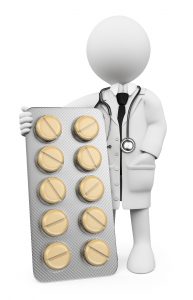It is imperative that a comprehensive assessment is carried out in order to ensure an accurate diagnosis of sleep disorder is made and appropriate treatment is implemented. It may be important to seek specialist advice from relevant health professionals, including Brain Injury Specialist, Clinical Psychologist, Consultant Psychiatrist, Respiratory Physician and/or a Sleep Disorders Clinic.
Restoration of the homeostatic sleep drive can be supported to produce maximum sleepiness at bedtime by:
- Helping the person to maintain a regular sleep-wake times.
- Encouraging exposure to daylight and darkness at night.
- Avoiding naps during the day.
- Filling the day with stimulating activity and exertion.
- Avoiding stimulating activity (e.g.large meals, exercise, exposure to screens emitting blue light) in the lead up to bedtime.
- Avoiding stimulating substances (e.g. caffeine, nicotine, ) in the lead up to bedtime.
- Avoiding alcohol and illicit substances.
- Engaging in relaxation exercises or non-stimulating activities in the evening (e.g. listening to gentle music, jigsaw puzzles etc).
- Considering important environmental factors (e.g. noise and light reduction).
Sleep Problems Secondary to Psychiatric Disorders, Pain and/or Stress
Psychiatric disorders should be detected and treated. Sleep is likely to improve with successful treatment of depression and/or anxiety. Pain is a common cause of insomnia and is easily missed in individuals with cognitive and/or communicative difficulties after brain injury. Adequate analgesia may help to improve sleep where pain is a contributory factor to sleep disturbance (on a trial basis, where pain is only suspected rather than conclusively diagnosed). Treatment of the underlying causes of pain may also help to improve sleep. Psychosocial issues leading to worry and anxiety can perpetuate insomnia and should be discussed and addressed.
Hypersomnia After Brain Injury (Post-Traumatic Hypersomnia)
The treatment of post-traumatic hypersomnia (excessive day-time sleeping) should start with a review of medication. This may include reduction, discontinuation or change to the timing of sedative medications. In severe and prolonged cases of post-traumatic hypersomnia, stimulant medication may be considered under specialist psychiatric supervision. Bright day-time light through open blinds or curtains or even bright light therapy may also be helpful.
Obstructive Sleep Apnoea
Obstructive sleep apnoea is usually diagnosed and managed by respiratory physicians and treatments include Continuous Positive Airways Pressure Ventilation (CPAP) used at night, although modification of risk factors such as obesity and sedative medication may also help.
The use of medication for insomnia should be used with caution. Short acting hypnotics (e.g. zopiclone, temazepam) should be used on a short term basis only, if possible. Most medications which aid sleep through the night can lead to ‘hangover’ sedation during the day.
The use of Benzodiazepines on a regular basis may impair cognitive function and should be avoided in the management of sleep disturbance, if possible. Trazodone (25 – 100 mg) may be a suitable alternative.
Melatonin can be prescribed to support restoration of a normal circadian rhythm. This has been found very helpful for some individuals although the evidence base for its use to help sleep after brain injury is not strong.
